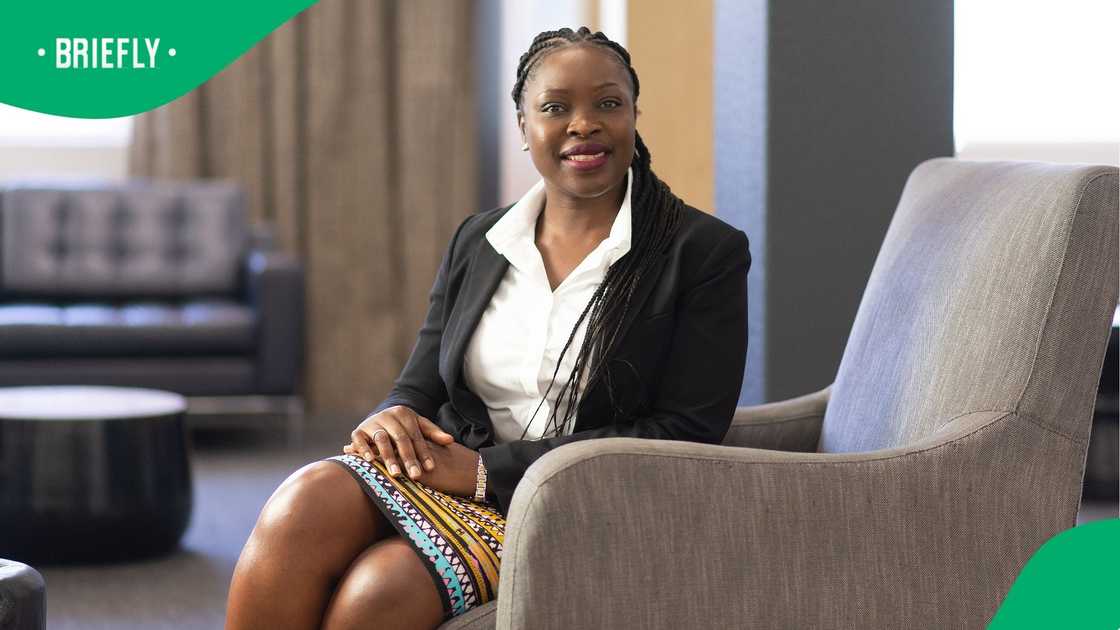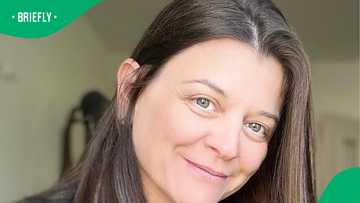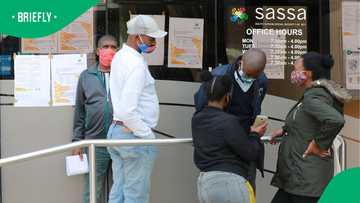New Plan to Close South Africa’s Cervical Cancer and STI Diagnosis Gap
Professor Tivani Mashamba-Thompson is the Director of the Centre for Development and Implementation of Point-of-Care Diagnostics in the Faculty of Health Sciences at the University of Pretoria.
As South Africa commemorates Women’s Month during August, we also celebrate a landmark achievement in women’s health research and policy: the publication of a collaborative policy brief that provides a road map for reducing deaths from two of the most pressing women’s health challenges in South Africa and across sub-Saharan Africa: cervical cancer and sexually transmitted infections (STIs).

Source: Original
The policy brief, Accessible Diagnostics: Integrating Self-Sampling into Women’s Health Strategies in South Africa and Sub-Saharan Africa, draws on evidence from 16 peer-reviewed studies (2021–2025) and highlights self-sampling for human papillomavirus (HPV) and STIs as a safe, accurate and empowering diagnostic approach.
The brief is issued by the National Cancer Research and Innovation Strategy under the Department of Science, Technology and Innovation (DSTI) and is led by the University of Pretoria’s Centre for Development and Implementation of Point-of-Care Diagnostics (CPOC-Dx).
Tackling a women’s health crisis
STIs and cervical cancer disproportionately affect women in rural, peri-urban and underserved communities. Tragically, these are preventable diseases when diagnosed early and treated promptly.
PAY ATTENTION: Briefly News is now on YouTube! Check out our interviews on Briefly TV Life now!
Cervical cancer is among the leading causes of cancer-related death among women in sub-Saharan Africa, despite being highly preventable through early detection. Recent research led by academic and clinical centres across South Africa highlights self-sampling for HPV and STIs as a diagnostic strategy that could save many lives, especially among young and marginalised women.
By enabling women to collect their own samples in privacy, self-sampling removes critical barriers such as stigma linked to sexual health testing, long travel distances to clinics, and shortages of female healthcare providers – intersecting barriers identified through systematic reviews.
Key policy recommendations
The brief outlines six key policy recommendations, which offer a gender-transformative path toward reducing avoidable mortality, advancing health equity, and achieving Sustainable Development Goals (SDGs) 3 (Good Health and Well-being) and 5 (Gender Equality):

Read also
Deputy Minister of Women Steve Letsike takes action against influencers promoting Russian agency
- Institutionalise self-sampling in policy frameworks, through actions such as incorporating HPV/ STI self-sampling in the Essential Diagnostics List and National Health Insurance (NHI) benefit package; and updating national sexual and reproductive health (SRH) and cancer strategies to reflect community-centred diagnostic models.
- Leverage community-based platforms to decentralise screening through actions such as distributing free self-sampling kits via ward-based outreach, mobile clinics, community health workers (CHWs), schools, and non-governmental organisations; and training CHWs and nurses in gender-sensitive sample collection guidance.
- Empower through communication and destigmatisation initiatives such as launching multimedia campaigns in multiple languages, and leveraging digital platforms (WhatsApp, SMS, YouTube) for education and results notifications.
- Strengthen digital health integration through actions such as developing interoperable, anonymised digital systems for result tracking, referrals, and surveillance; and integrating digital health tools for real-time tracking, result delivery, and referrals linked to national health systems.
- Ensure equity and reach by providing free or subsidised kits for underserved groups – women in informal settlements, adolescents, LGBTQIA+ individuals, sex workers, and women with disabilities – and by removing ID and documentation barriers.
- Promote innovation, research, and co-design through actions such as funding implementation science and cost-effectiveness research; and by involving women and men as co-designers of diagnostic tools, services, and care models.

Source: Getty Images
Women’s Month call to action
This policy brief is more than a summary of evidence. It is a living example of what strategic partnerships in health research can achieve. By uniting universities, government agencies, research councils, industry innovators, and clinical networks, the initiative demonstrates that collaborative, multi-sector approaches lead to stronger evidence, more inclusive policy, and faster translation of science into practice.
Industry plays a critical role in this ecosystem, transforming research insights into accessible products, scaling up manufacturing, enabling efficient distribution, and ensuring the long-term sustainability of diagnostic programmes. Together, these partnerships ensure that innovation does not remain confined to laboratories but reaches the women who need it most.
The brief is also a powerful case study in open science. All findings have been made accessible beyond academic journals, bridging the gap between research and action so that policymakers, healthcare workers, industry partners, and communities can act without delay.

Read also
"This is how it's done": Mzansi at odds over R3.2 billion university being built in Pretoria
The policy recommendations above serve as proof that diverse, well-coordinated partnerships, including industry, can turn scientific research into concrete, life-saving health policies.
As we work together across the country during Women’s Month to create a better and equal world for women, on behalf of myself and the exceptional researchers and organisations who supported this policy brief, we call upon:
- researchers to embrace open science and ensure their work reaches the communities who need it most;
- policymakers to prioritise the adoption and funding of evidence-based solutions;
- industry leaders to continue investing in innovative, affordable, and scalable diagnostic technologies; and
- communities to demand equitable access to life-saving diagnostic services.
Diagnostic equity is a matter of health justice. By embedding self-sampling into policy and practice, we can empower women to take control of their health, prevent avoidable deaths and build stronger, healthier communities. No woman should be left behind.
3 More stories about cancer
- Briefly News also reported that a South African family from Cape Town touched the world when they shared a video of how they supported their mom battling cancer.
- President Cyril Ramaphosa conducted an oversight visit to Steve Biko Hospital along with other ministers.
- A beautiful woman in the Eastern Cape who conquered breast cancer is over the moon about winning the Mrs Eastern Cape Queen 2024 beauty pageant.
Disclaimer: The views and opinions expressed here are those of the author and do not necessarily reflect the official policy or position of Briefly News.
PAY ATTENTION: Follow Briefly News on Twitter and never miss the hottest topics! Find us at @brieflyza!
Source: Briefly News



